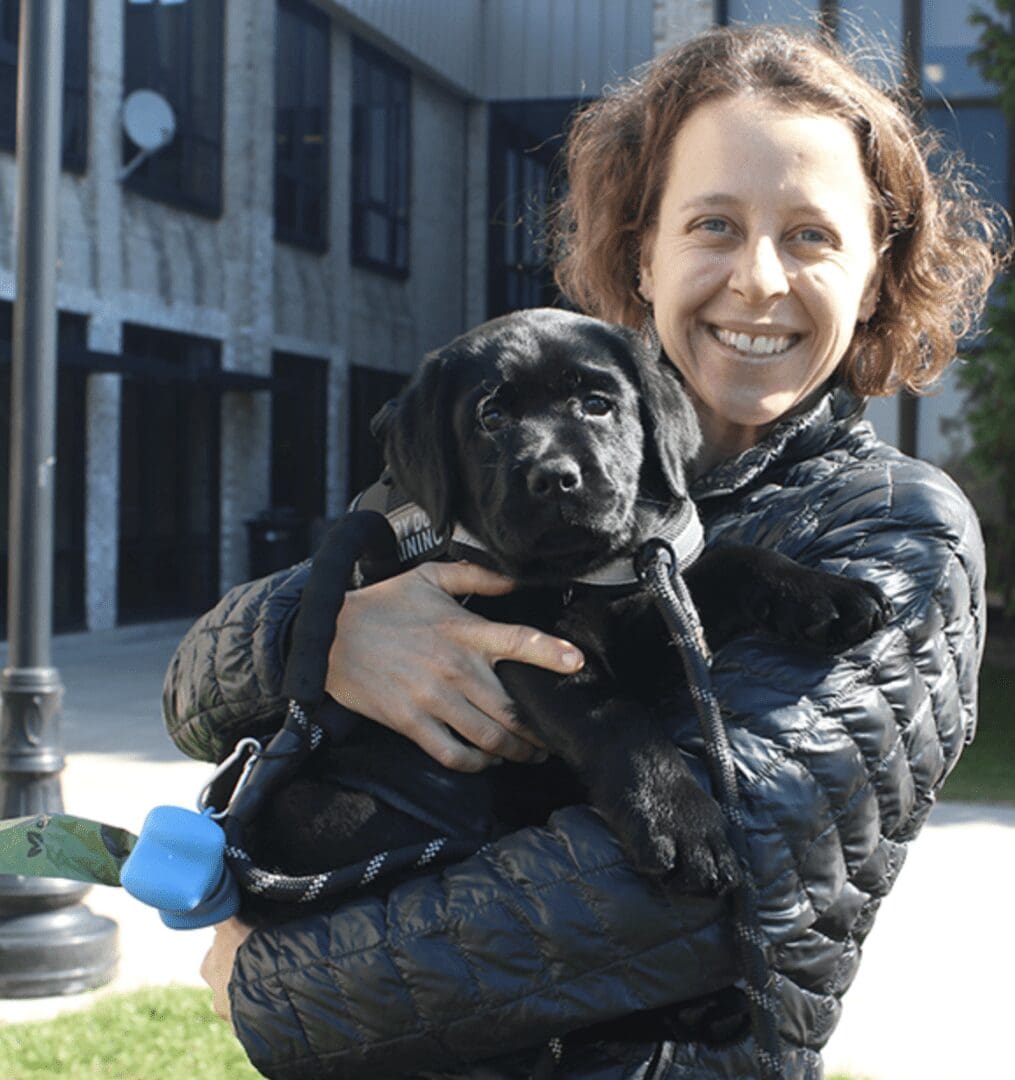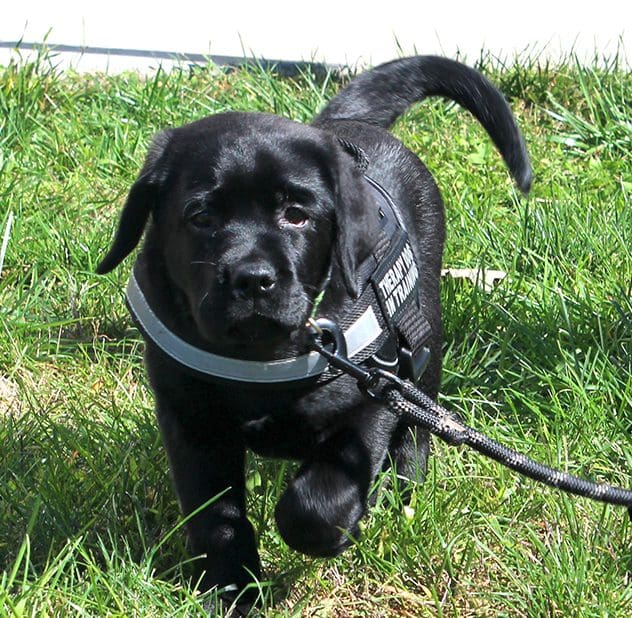Search Posts
Recent Posts
- Rhode Island Weather for May 31, 2025 – Jack Donnelly May 31, 2025
- Burn with Kearns: Fix Your Foundation: Core, Mobility & Joint Health – Kevin Kearns May 31, 2025
- In the News… quick recap of the week’s news (5.31.25) May 31, 2025
- Business Beat: Navigant CU receives prestigious Community Impact Award from NEACH May 31, 2025
- To Do in RI: Taste of Rhode Island. Food, libations, entertainment, auction for Matunuck Oyster Bar May 31, 2025
Categories
Subscribe!
Thanks for subscribing! Please check your email for further instructions.

Basil, new therapy dog at URI offers a moment to “paws and reflect”; step away from stress
Members of the University of Rhode Island campus community now have the opportunity to “paws and reflect,” step away from the stress of the day and spend a little time with Basil, the new therapy dog based in the campus Psychological Counseling Center (PCC).
Center Director Lindsey Anderson is always on the lookout for new tools to help her and other clinicians treat students, faculty, staff members, and clients from the community outside URI. After seeing a news report about a breeder in New Hampshire that had donated a therapy dog to the East Providence Police Department, and knowing the value a therapy dog would have on a college campus, Anderson reached out to Peggy Brogan at Boonefield Labradors, who agreed to donate one of their English Labrador puppies to the PCC.
“The goal is really to get animals into spaces where they are most needed. And there is no greater need than college campuses, given what’s happening with mental health among college students,” Anderson said. “So far everyone who has interacted with her is smitten.”
Basil, who came to campus in September as a 10-week-old puppy, has been an immediate hit, even before she began her work in the clinic. Students and campus employees alike already know her name and will yell it from across campus when out for a walk, said Anderson, who is caring for and training the pup to be a certified therapy dog after she turns one year old. Other students have stopped by the PCC in Chafee Hall just for the chance to meet her. In fact, the attention began on the first day, when Anderson first took Basil out of her car that morning and was almost immediately approached by a faculty member having a bad morning.
“She started crying and said this has been the worst morning, and she’s so grateful to pet Basil. We hadn’t even made it in the door on day one and she was already doing what she’s here to do,” Anderson said. “I knew she would be a hit, but I had no anticipation how great the need was here. There are students who become tearful saying how they miss their dogs and how happy they are to pet her. There’s just something about slowing down, and petting an animal who’s calm and who licks you and wants to be around you.”
Basil prompted a similar response from a student on a recent Friday morning. Margaret Lasky was walking across campus after a stressful class when she spotted Anderson walking with Basil and asked if she could pet the adorable puppy. “I just had a really bad class and was stressed out when I saw them,” Lasky said after spending a few minutes playing. “I would have been in a terrible mood the rest of the day, but this just made my day.”
That is the common response from just about anyone who encounters Basil, Anderson said. Research shows interactions with dogs boost cognitive and emotional activity in the brain. Physical contact with the animal further boosts brain activity and may stimulate a dopamine release in the brain, which lowers stress and increases a sense of well-being.
“It is simply about the connection,” Anderson said. “For people who are feeling heightened emotions in a particular moment, or in a lot of distress, it’s simply that connection to a calm animal that helps to bring down the emotional intensity and regulate some of the physiological responses that come from heightened anxiety and heightened stress.”
Basil is beginning her therapy job by working with some of the PCC’s youngest clients, children as young as 7 who are experiencing anxiety or depression. Some of those clients have a fear of dogs, which Basil — an English Labrador known for its calm, peaceful demeanor — helps to dispel through gradual introduction. In addition to Basil’s work in the clinic, Anderson plans to partner with groups on campus conducting mental health events or wellness events. She plans to have Basil available during Fresh Check Day on the Quad Oct. 19, flu clinics in the Memorial Union and other scheduled events. She also plans to assign specific “office hours” when Basil will be available for meet-and-greets, necessary due to the pup’s immediate popularity.
“We take her out to go to the bathroom or to walk, and it can take an hour, the students are so happy to see her,” Anderson said. “We’re a clinical space so we can’t have people just walking into the clinic. But we very much want her to be available to people. We’re working on setting times when she can be at specific places on campus — the library, the Union, maybe just the quad — where people can ‘paws and reflect,’ pet her, play with her for a few minutes and just step away from their work or their assignments for a bit. We’re really excited for Basil to be here to help, not only with our pediatric clients but with our adult clients as well.”

Basil is one of 11 English Labradors Boonefield has so far donated to police departments, schools, funeral homes, clinics and more throughout New England. “Therapy dogs volunteer in clinical settings, such as hospitals, mental health institutions, hospices, schools and nursing homes, where they provide comfort, affection, and even love in the course of their work,” the organization’s website reads.
Basil is already meeting those goals at URI.
“We’ve seen a huge response already from our clinicians — who are also graduate students — who have a need to connect and need to have some of those neural pathways activated that research shows are super primed by the human-animal interaction,” Anderson said. “Basil doesn’t bark, and she doesn’t make a lot of fast, sudden movements, which is consistent with the breed. That has been really helpful in therapy. She’s just been a joy.”
Lindsey Anderson, director of the Psychological Counseling Center and Basil
Photos by Patrick Luce
___
